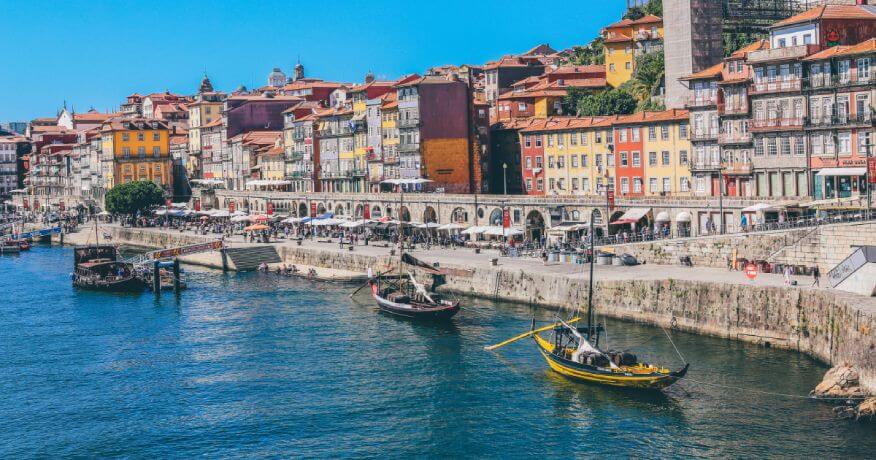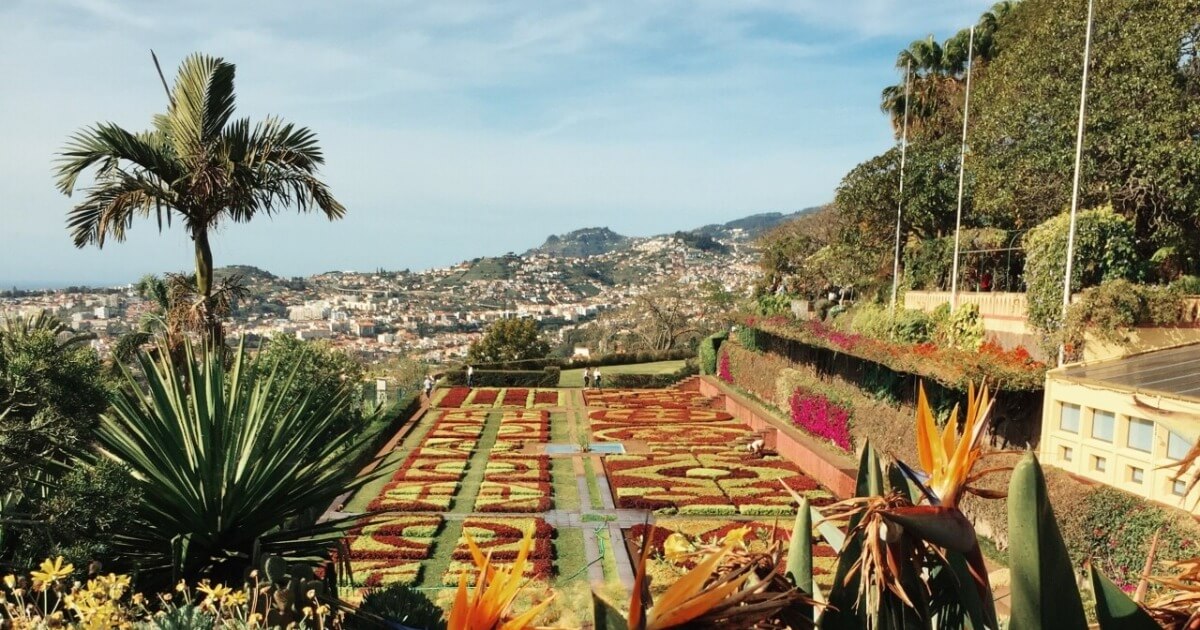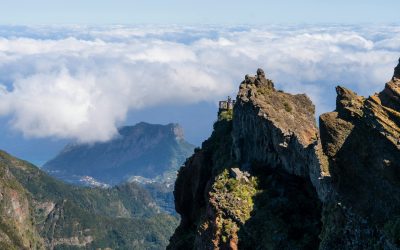Are you dreaming of a retirement filled with stunning landscapes, mild climates, and a welcoming community? Look no further than to retire in Madeira Island, an enchanting destination in the Atlantic Ocean that offers all this and more. In this comprehensive guide, we will explore the various aspects of retiring in Madeira, providing valuable insights and practical information to ensure a successful and fulfilling retirement experience.
Retiring to Madeira: A New Comprehensive Guide.
Why Choose Madeira Island for Retirement?
Madeira Island has numerous reasons why it stands out as an ideal retirement destination. Its year-round temperate climate, captivating natural beauty, and rich cultural heritage make it an irresistible choice for retirees seeking tranquillity and a high quality of life. The island’s lush greenery, breathtaking cliffs, and pristine beaches create a paradise-like setting that offers endless opportunities for relaxation and exploration.
The cost of living in Madeira is relatively affordable compared to many other European destinations, making it an attractive option for retirees looking to stretch their retirement savings. Housing costs, utilities, transportation, and healthcare expenses are generally lower, allowing retirees to enjoy a comfortable lifestyle without breaking the bank.
Madeira is renowned for its warm and welcoming community. The locals, known as Madeirans, are known for their hospitality and friendliness towards expats and retirees. While Portuguese is the official language, many people in Madeira speak English, German, or French, making it easier for retirees to communicate and integrate into the local community.
Legal Requirements for Retiring in Madeira
Before embarking on your retirement journey to Madeira, it is essential to familiarize yourself with the legal requirements for retiring on the island. As an EU citizen, you can stay in Madeira for up to 90 days without a visa. However, if you plan to retire in Madeira for an extended period, you will need to apply for a registration certificate (CRUE – Certificado do registo de Cidadão da Uniao Europeia) at the City/Town Hall.
Non-EU citizens may need to apply for a residency permit to retire in Madeira. Options such as the D7 Visa (for passive income holders and retirees) or the Golden Visa (for investment) are available. It is advisable to consult with an immigration lawyer or relocation agency to understand the specific requirements and process for obtaining a residency permit.
Cost of Living in Madeira for Retirees
Understanding the cost of living in Madeira is crucial for planning your retirement budget. While the cost of living can vary depending on individual lifestyles, Madeira offers a more affordable lifestyle compared to many other European destinations.
Housing costs in Madeira are generally lower than in major European cities. Rental prices for apartments and houses are reasonable, especially outside of the capital city, Funchal. Retirees can find affordable options that suit their preferences and budget.
Grocery prices in Madeira are also relatively reasonable, especially if you opt for local produce and markets. Imported goods may be slightly more expensive due to transportation costs. Overall, dining out and entertainment costs in Madeira are affordable, with a wide range of restaurants, cafes, and cultural events catering to different budgets.
Healthcare and Insurance in Madeira
Madeira boasts a comprehensive healthcare system that ensures retirees have access to quality medical care. The Serviço Regional de Saúde (SESARAM) is the public healthcare system in Madeira, providing a range of services, including hospitals, clinics, and pharmacies. Retirees can also opt for private healthcare, which offers shorter waiting times and a wider choice of doctors and specialists.
As a retiree in Madeira, it is essential to have health insurance coverage to access healthcare services. While the public healthcare system is generally free, private healthcare can be more expensive. Retirees should compare different insurance plans and choose one that suits their specific needs and budget. Researching and purchasing health insurance coverage before retiring in Madeira will ensure that you are well-prepared to navigate the healthcare system on the island.
Retiree-Friendly Communities in Madeira
One of the key factors in enjoying a fulfilling retirement is connecting with like-minded individuals and building a supportive community. Madeira offers a vibrant expat community, with retirees from various backgrounds and nationalities coming together to create a warm and inclusive environment.
Joining expat groups and associations is an excellent way for retirees to meet fellow expats and engage in social activities. There are several expat communities in Madeira that organize regular events, outings, and social gatherings. These communities provide a platform for retirees to share experiences, make new friends, and explore the island together.
Engaging with the local community and immersing oneself in Madeiran culture can also enrich the retirement experience. Learning the Portuguese language, participating in local traditions, and getting involved in community initiatives can help retirees forge deeper connections and fully embrace the Madeiran way of life.
Finding Retirement-Friendly Accommodation in Madeira
Madeira offers a range of accommodation options that cater to retirees’ needs and preferences. Whether you prefer the vibrant city life of Funchal or the tranquillity of a coastal village, there is something for everyone on this island paradise.
Retirees can find rental properties at affordable prices in Madeira. Online real estate platforms, local real estate agents, and expat groups on social media are excellent resources for finding retirement-friendly accommodation. It is advisable to visit the island and explore different areas before making a final decision. Retirees should consider factors such as location, amenities, and proximity to essential services when choosing their retirement home in Madeira.
Exploring the Non-Habitual Resident (NHR) Scheme
The Non-Habitual Resident (NHR) scheme is a key attraction for retirees considering Portugal as their retirement destination. This program offers significant tax benefits for the first ten years of residency, making it a highly appealing option for American retirees. Under the NHR scheme, retirees may be eligible for reduced or zero tax rates on certain types of income, including foreign salaries, interests and dividends.
It’s important to consult with a tax advisor to fully understand the implications of the NHR scheme and how it can benefit your specific financial situation. They can guide you through the application process and help you navigate the complexities of Portuguese tax laws.
Retiree Activities and Leisure in Madeira
Madeira offers a wide range of activities and leisure options for retirees to enjoy during their retirement years. The island’s natural beauty provides the perfect backdrop for outdoor adventures, such as hiking, golfing, and water sports. Retirees can explore scenic hiking trails, play golf on world-class courses, or indulge in water activities like sailing, snorkelling, and fishing.
For those seeking a more relaxed retirement lifestyle, Madeira offers an abundance of cultural events, festivals, and exhibitions. Retirees can immerse themselves in the island’s rich cultural heritage by visiting museums, attending concerts, and participating in traditional festivities. Madeira’s vibrant social scene ensures that retirees always have something to look forward to and enjoy during their retirement years. One could say that to retire in Madeira is to retire in happiness.
Retiring in Madeira vs. Mainland Portugal

Porto, Portugal
To retire in Madeira offers several advantages over retiring in mainland Portugal. While both destinations offer a high standard of living, Madeira’s natural beauty and temperate climate set it apart. The island’s stunning landscapes, lush greenery, and breathtaking coastline create an idyllic setting for retirees seeking tranquillity and serenity.
The cost of living in Madeira is generally lower than in mainland Portugal. Housing costs, utilities, and healthcare expenses are more affordable, allowing retirees to stretch their retirement savings further. Madeira’s smaller size and more relaxed pace of life also contribute to a more peaceful and stress-free retirement experience.
Madeira’s warm and welcoming community is another advantage for retirees. The locals’ hospitality and friendliness make it easier for retirees to integrate into the local community and establish connections. While learning Portuguese is beneficial, many people in Madeira speak English, making communication easier for retirees from English-speaking countries.
Conclusion
To retire in Madeira Island is a dream come true for those seeking a tranquil and fulfilling retirement experience. With its year-round temperate climate, captivating natural beauty, and warm community, Madeira offers retirees an unrivalled retirement destination. The island’s affordability, vibrant expat communities, and diverse leisure activities make it an ideal place to embrace a balanced and rewarding retirement lifestyle. Whether you prefer outdoor adventures or cultural pursuits, Madeira has something for everyone. So why wait? Start planning your retirement in Madeira and embark on a new chapter filled with endless possibilities.

Miguel Pinto-Correia holds a Master Degree in International Economics and European Studies from ISEG – Lisbon School of Economics & Management and a Bachelor Degree in Economics from Nova School of Business and Economics. He is a permanent member of the Order of the Economists (Ordem dos Economistas)… Read more




